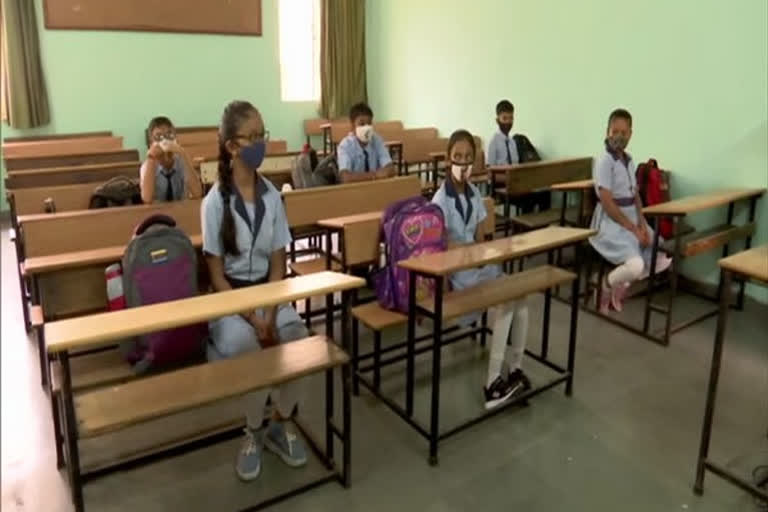New Delhi: Amid an ongoing debate over the resumption of schools in India, the Indian Association of Preventive and Social Medicine (IAPSM) in its report, submitted to the central government, has asserted that vaccination of children is not a prerequisite to open schools. "According to the World Health Organisation (WHO), children and adolescents tend to have the milder disease compared to adults. Therefore, except for those children who are at higher risk of severe SARS-CoV-2, they do not form a priority group for vaccination," IAPSM said in its advisory for reopening of schools submitted to the different ministries of the central government.
The IAPSM, a conglomerate of epidemiologists, health management and health promotion specialists, family medicine experts, has submitted its report to the health ministry, education ministry, ministry of women and child development, Niti Aayog and ICMR. It said that the risk of death among children due to SARS-CoV-2 is less than the risk due to traffic accidents or other infections like Dengue.
Moreover, the latest national serosurvey indicates that almost three-fifths of Indian children already had natural infections, it said. "Schools are open in most of the countries of the world even if none of the countries has vaccination for children younger than 12 years," the IAPSM said in its report cum advisory submitted to the government.
The latest and fourth national serosurvey shows that children have already got Covid19 infection at a similar or even higher rate than adults. "Therefore, they are already protected and not at additional risk. This also informs us that in spite of schools not been open, children did interact with peers and neighbours their lane's and villages," the IAPSM said.
Read: Surgical Masks More Effective At Curbing COVID Spread Than Cloth: Study
Emphasising the need for physical classes, the IAPSM said that Covid19 has forced a deviation from traditional learning and teaching leading to reduced interpersonal and physical interactions. "This has resulted in a serious predicament for children belonging to the marginalised and disadvantaged section of the society, who rely majorly on the physical setting of schools to access educational materials, guidance, nutrition and interpersonal development," the IAPSM said.
According to an estimate, around 65 percent of the Indian students are enrolled in public sector institutions and a major proportion lives in rural areas whereas access to online platforms is limited, both for students as well as teachers. Availability of electricity, internet connectivity and accessibility to smartphones are some of the major concerns of the rural population.
"Among the children enrolled in schools only 56 percent of families own a smartphone," the IAPSM quoting report. Highlighting some of the disadvantages of losing due to school closure, the association said that children's reliance on online platforms for distance learning may also increase their risk of exposure to inappropriate content on the internet.
In its advisory, the IAPSM further suggested some safeguards at different levels. "Classrooms should be well ventilated. Parents and teachers must engage in dialogue to ensure how the school environment and transportation services could be optimised to reduce risk exposure," it said. The IAPSM further said that staff and students in educational institutes should be trained and encouraged to follow Covid appropriate behaviour at all times.
"The teachers should also be trained to identify respiratory symptoms like cough, sore throat, runny nose, sneezing and fever. All teachers and staff need to be vaccinated on a priority basis," the IAPSM said in its report.
Read: Marriage of convenience under 'Mahajot' in Assam passing through murky weather



